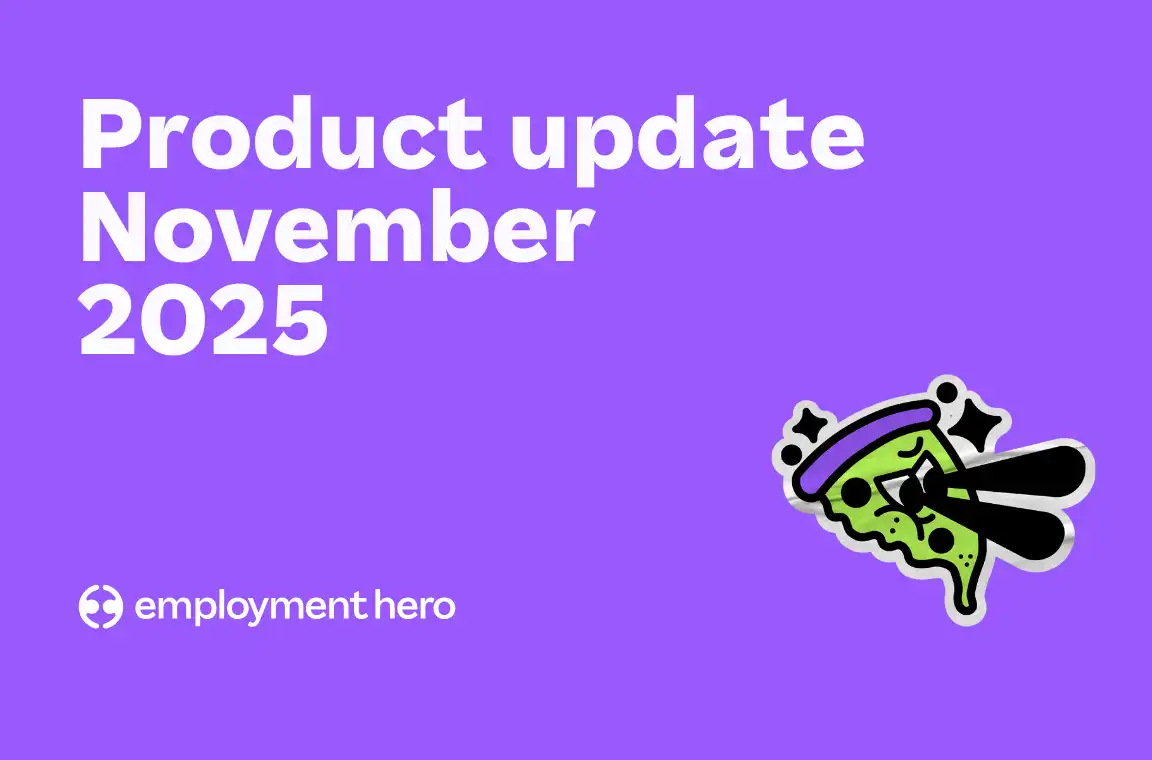What is gardening leave, and is it a good idea?

Gardening leave is used by employers as a measure to protect the employer’s business interests and ensure that key employees exiting a business have a minimal impact on its reputation and ongoing success.
It’s a common contract term, but it does come with costs and risks for the employer. While it can protect the employer’s business interests by preventing the employee from contacting or soliciting clients or employees, or accessing or transferring valuable or confidential information, it can be costly because the employee will continue to be paid for the duration of the leave period.
So let’s dig a bit deeper into this thorny subject. And we promise, no more gardening puns. Let’s roll up our sleeves to explore exactly what gardening leave is (and is not), and why a business might use it.
What is gardening leave?
Gardening leave is a contractual provision that can be triggered when an employee gives or or is given notice to leave. It is mainly used by employers for privacy, to protect the interests of the business and to protect against commercially sensitive or valuable information being passed to competitors when an employee starts a new job.
Or to look at it another way, gardening leave is suspending an employee on full pay.
Gardening leave kicks in when an employee leaves the business. After the employee gives notice to leave their role or is given notice of employment termination, the employee is required to stay away from the office. This measure can be activated whether an employee is leaving due to resignation, is being dismissed or is made redundant.
During the period of gardening leave, the employee is prohibited from:
- Coming to the work premises
- Carrying out any work duties (from home or elsewhere)
- Communicating with clients or colleagues
Although no work or attendance is required, the employee remains on the payroll and within the company throughout the entirety of the gardening leave process. That means that both the employer and employee must continue to hold up their contractual obligations, including fidelity and confidentiality.
The employer therefore remains responsible for:
- Keeping the employee on the payroll and paying their normal salary
- Providing them with existing contractual benefits such as pension schemes, gym memberships etc.
Using restrictive covenants
Some contracts may prevent the employee from working for a competitor (or themselves in the same line of business) for a certain period of time, usually six months. In the UK, these restrictions are called restrictive covenants. An employer can take employees to court if an employee breaches a restrictive covenant in their contract.
What’s the difference between garden leave and gardening leave?
Gardening leave and garden leave are the same – although gardening leave is the original term. It comes from a standard employment practice in the British Civil Service and came into common usage in the 1980s after it was featured in an episode of the BBC sitcom Yes, Minister. Since then, contract terms for putting an employee on gardening leave have become more popular.
Do employees get paid during gardening leave?
Employees on gardening leave do get paid because they remain on the payroll of their current employer until their notice period expires. As they are effectively still employed throughout their notice period and the period of gardening leave, they keep their entitlement to all their work rights and benefits such as salary, statutory sick leave, parental leave and annual leave.
When should companies use gardening leave?
Gardening leave clauses are used to prevent the transfer of valuable or confidential information, and they can also prevent the employee from trying to entice any clients, customers or existing employees of the company.
Gardening leave also ensures that the employee remains available to help with any queries regarding handovers or the employee’s successor in the role. This can ensure that the successor has a smooth transition into the role which might be important where client relationships are involved. A loss of knowledge can be a significant cost and risk to a business.
Gardening leave clauses also protect the business from sabotage or mischief, either by the exiting employee causing damage or misusing company data or property while they are still employed, or by taking confidential information to a competitor. It also stops them potentially using company information in order to set up a business themselves in competition. The existence of gardening leave clauses may also discourage competitors from poaching employees from senior positions.
Keeping an employee on payroll while they aren’t able to work can be expensive, but the primary benefit is to protect the company’s privacy and confidentiality.
To ensure compliance with local employment laws, it’s very important to ensure that any gardening leave clause is clearly explained within the contract of employment.
What happens during the employee’s notice period?
Usually an employee would continue their duties and work out their notice period, including helping with a handover. However, gardening leave is a measure to prevent an employee from working after they have resigned or had their employment terminated. They may still be called upon to assist with a handover, but they will be prevented from performing their work duties and from contacting existing employees and clients or customers.
What can employees do during gardening leave?
Gardening leave is designed to restrict a person’s work life, therefore they are not able to work for their company, themselves or a competitor. As the name suggests, the only activity they are allowed to do is spend time in the garden… Gardening. This is, of course, metaphorical rather than literal. An employee on gardening leave is simply not able to do their work, but they may spend time pursuing hobbies.
Can employees access company information? No
Can employees work in another company? No
Can employees set up their own business? Not in the same line of work
Can employees go on holiday? Yes
Can employees spend time with family? Yes

Don’t be confused about leave. Get to grips with leave with our handy guide.
Alternatives to gardening leave
A company may have reasons for not requiring an employee to work their notice period when they resign or they have been dismissed. The employer may believe that continued employment could negatively affect the company or other employees. In circumstances like this, gardening leave is one option available for employers. The other main option is Payment in Lieu of Notice (PILON).
While gardening leave requires the employee to wait out their notice period at home, payment in lieu of notice means that termination of employment ceases immediately and the employer pays what is owed to the employee instead of letting them work. However if the termination is due to gross misconduct, the employee is not usually entitled to payment.
In order to use a PILON clause, it must already exist in the employee’s contract. If the employer tries to terminate employment and pay the employee off, this could be considered a breach of contract as the employer is effectively preventing the employee from working. Employees can therefore only get payment in lieu of notice where the clause exists in the contract, or the employee agrees to it. If not, they will be entitled to work their notice period.
Can employees request gardening leave?
An employee is entitled to ask for gardening leave as part of the terms of their leaving agreement. If the contract of employment contains gardening leave clauses, an employee can ask for these terms to be enforced.
What should an employer do when employees are put on gardening leave?
When an employee gives their notice of resignation, or is asked to resign, employers must make important decisions about how to manage the employee’s exit. Where fidelity is crucial to the business’s operations or reputation, you may want to enforce gardening leave and any other restrictions that are in the employee’s employment contract. This would be to prevent any conduct which could put your company at risk.
You must continue to pay the employee, as well as provide any other contractual benefits.
It is extremely important to make sure that these rights are clearly expressed in employment contracts. If you put an employee on gardening leave where you have not expressly got the right to do so, or you withhold any entitlements or benefits, this could be considered a breach or repudiation of the contract, which would bring the contract to an end. This would also end the period of notice, and the gardening leave, leaving you at risk of court action, or your employee going to work for a competitor sooner than you wanted.
When the gardening leave period finishes, you can finish offboarding your employee. Make sure that you recover any company equipment, including; laptops, office furniture, keyboards, mobile phones, credit cards, uniforms and any other items that the company has given them for their role.
Hero Tip: Employment Hero’s Asset Register feature allows you to create a list of assets owned by your organisation, specify the code, the category it falls under, the purchase amount and the name of the item owner. With filtering, viewing and uploading options, it’s the easiest way to keep track of equipment around your business.
Should you include a garden leave clause in your employee’s contract?
Gardening leave can be a useful mechanism to protect a business’ interests. However, this can only be done where there is a gardening leave clause or an express right in the employee’s contract for the employer to put the employee on gardening leave. If there is no term in the contract, then the employer will have no remedy should the employee resign and go to work for a competitor.
During gardening leave, the employee is still employed by the company, therefore an employer is not entitled to take back company property such as company car, laptop or mobile phone before the end of the notice period. To do so would be a breach of contract.
If you want to be able to impose gardening leave, you must ensure that such clauses are clearly expressed in your employment contracts, along with other employer and employee rights associated with termination of employment, in particular:
- the right to place an employee on gardening leave for all or part of his or her period of notice;
- the right to make a payment in lieu of all or part of an employee’s notice period; and
- any restrictive covenants which restrain an employee after the employment ends.
If you’re considering introducing garden leave to your employment contracts, we recommend you seek out expert legal advice.
Managing employment contracts digitally
 Employment contracts are legally binding agreements between employers and employees that lay out the agreed terms and conditions and employment agreements that each party will abide by for the duration of the employment term. It’s designed to protect you (the employer) and your new employee, ensuring there is no confusion around requirements or remuneration for the job that needs to be completed.
Employment contracts are legally binding agreements between employers and employees that lay out the agreed terms and conditions and employment agreements that each party will abide by for the duration of the employment term. It’s designed to protect you (the employer) and your new employee, ensuring there is no confusion around requirements or remuneration for the job that needs to be completed.
They’re extremely important as they ensure that both employee and employer have a clear understanding of what is expected during the term of employment. As we’ve seen with gardening leave clauses, they can also help a company protect sensitive information.
A contract can be broken if either party doesn’t follow a term in the contract. For example, where the wrong notice period is given, or an employer takes away certain benefits during the notice period. This can give the other party the right to choose to end the contract and/or pursue damages. That’s why it’s so important to get contracts right.
Handwritten contracts won’t cut it these days – as one unnamed company in Sydney recently found out after it was publicly blasted for its ‘pathetic’ employment contract.
But how can you avoid such pitfalls?
Employing, managing and paying your employees doesn’t just require skills and time – it can also turn into a heavy paperwork and compliance burden.
The case for streamlined HR
That’s where streamlined digital contracts come in. An electronic employment contract is a contract executed online that outlines the terms of your new staff member’s employment.
They outline all of the same important details as paper contracts; the terms of a person’s employment, their start date, their job title and the duties of their role and their pay or salary details. Instead of delivering this to the new employee as a stack of paper, the details are sent digitally. There are heaps of benefits – they are accessible, streamlined, and quick. Stored on the cloud, the employee can instantly access the contract and use digital signatures to secure their role.
Making the switch to electronic employment contracts not only helps you create an impressive candidate experience but also saves your HR team valuable admin time.
Using digital HR management software is a great way to streamline and reduce admin while also giving transparency and compliance a boost.
Find out more about the digital transformation revolution in HR and how it can help your business. Speak to one of our experts today.
Related Resources
-
 Read more: Product Update: January 2026
Read more: Product Update: January 2026Product Update: January 2026
Welcome to the January 2026 product update from the Employment Hero team. We’ve got lots to share around Custom Forms,…
-
 Read more: Product Update: December 2025
Read more: Product Update: December 2025Product Update: December 2025
Welcome to the December 2025 product update from the Employment Hero team. We’ve got lots to share around Custom Forms,…
-
 Read more: Product Update: November 2025
Read more: Product Update: November 2025Product Update: November 2025
Welcome to the November 2025 product update from the Employment Hero team. We’ve got lots to share around Workflows, Rostering,…









